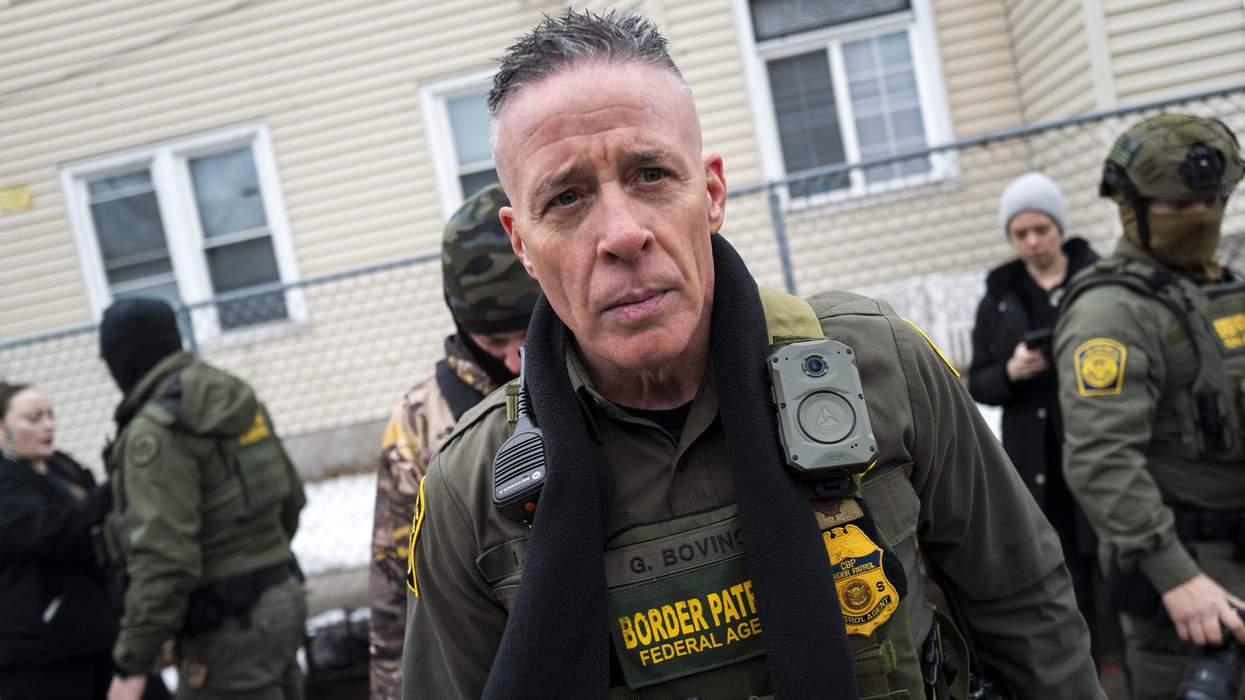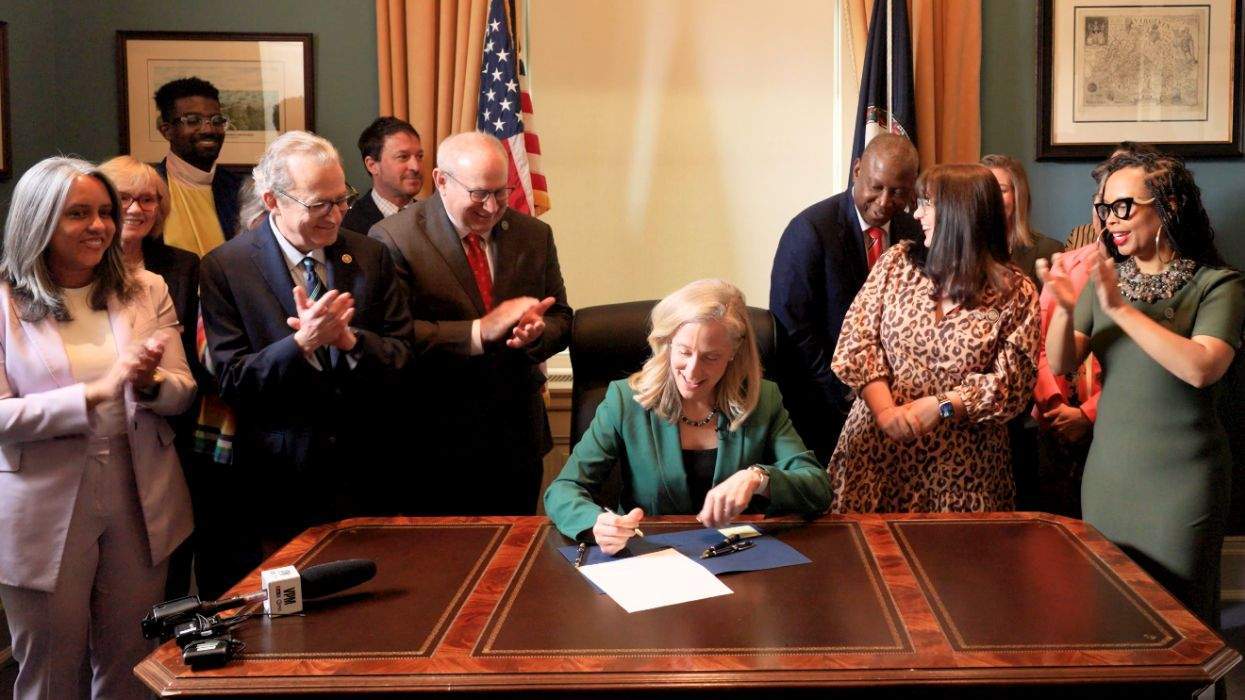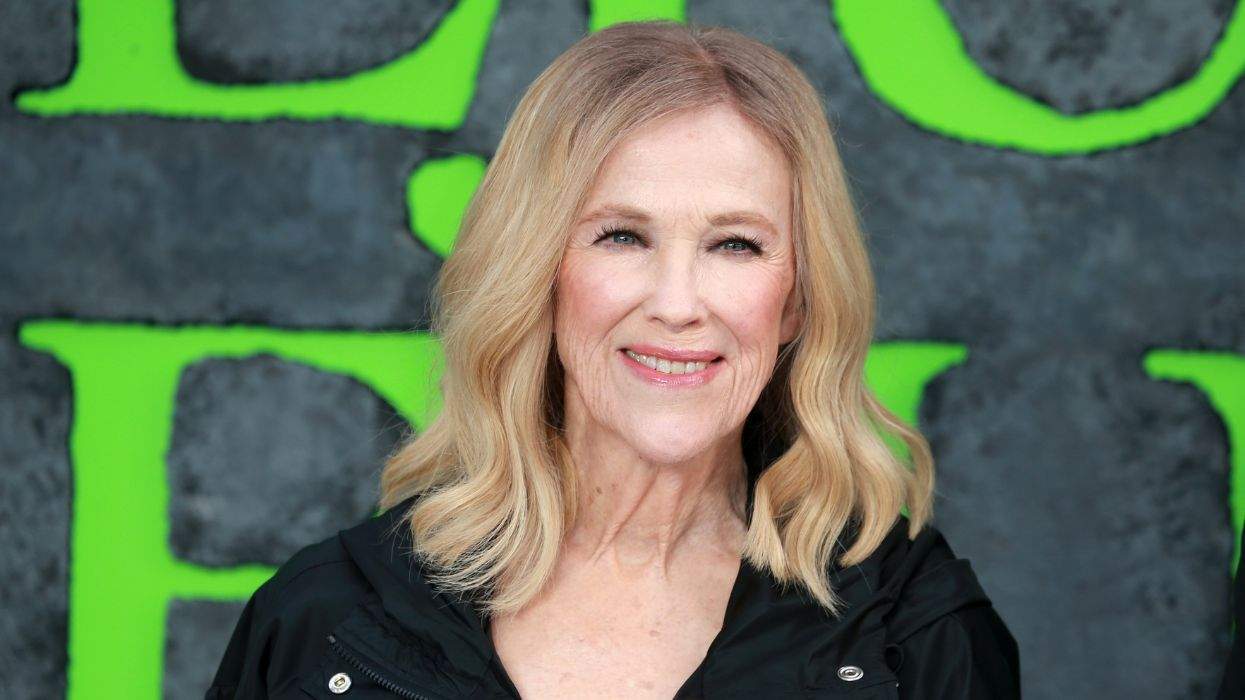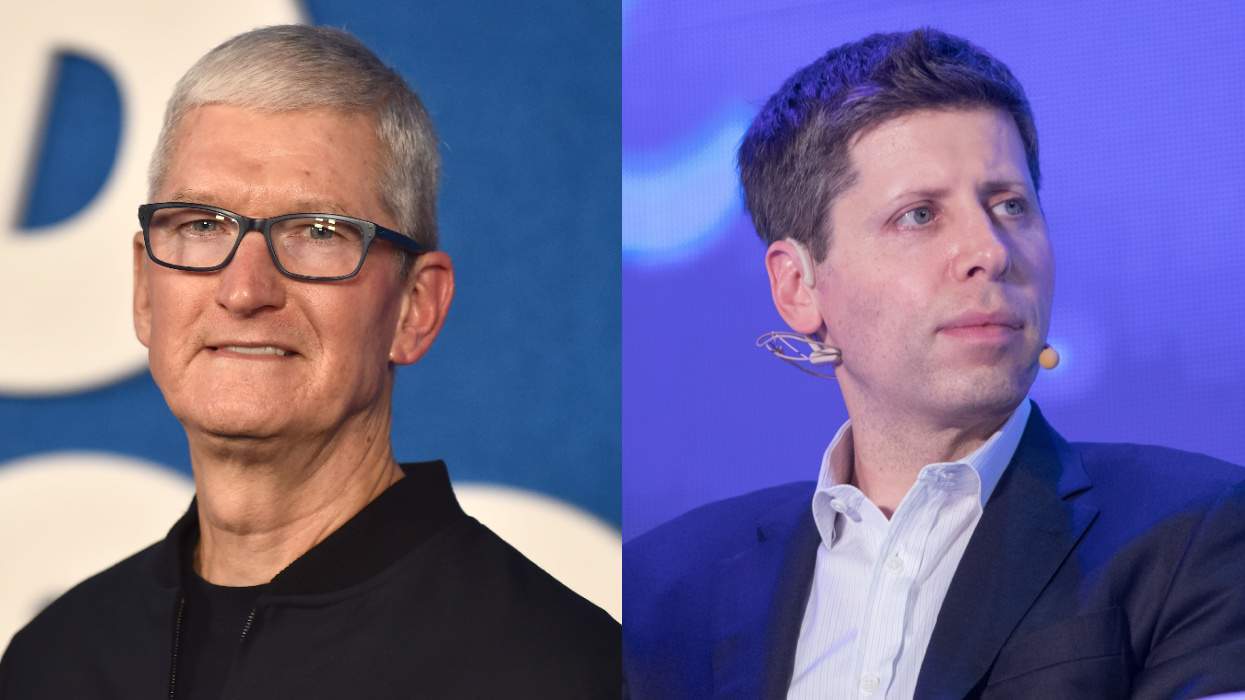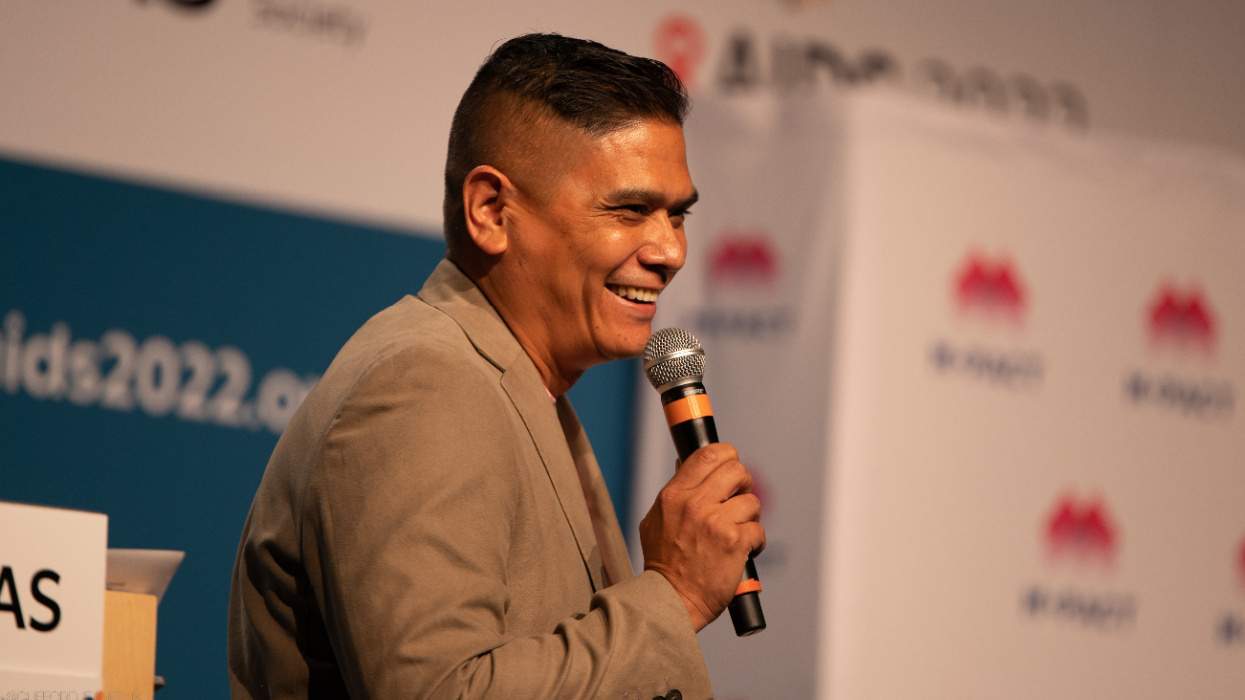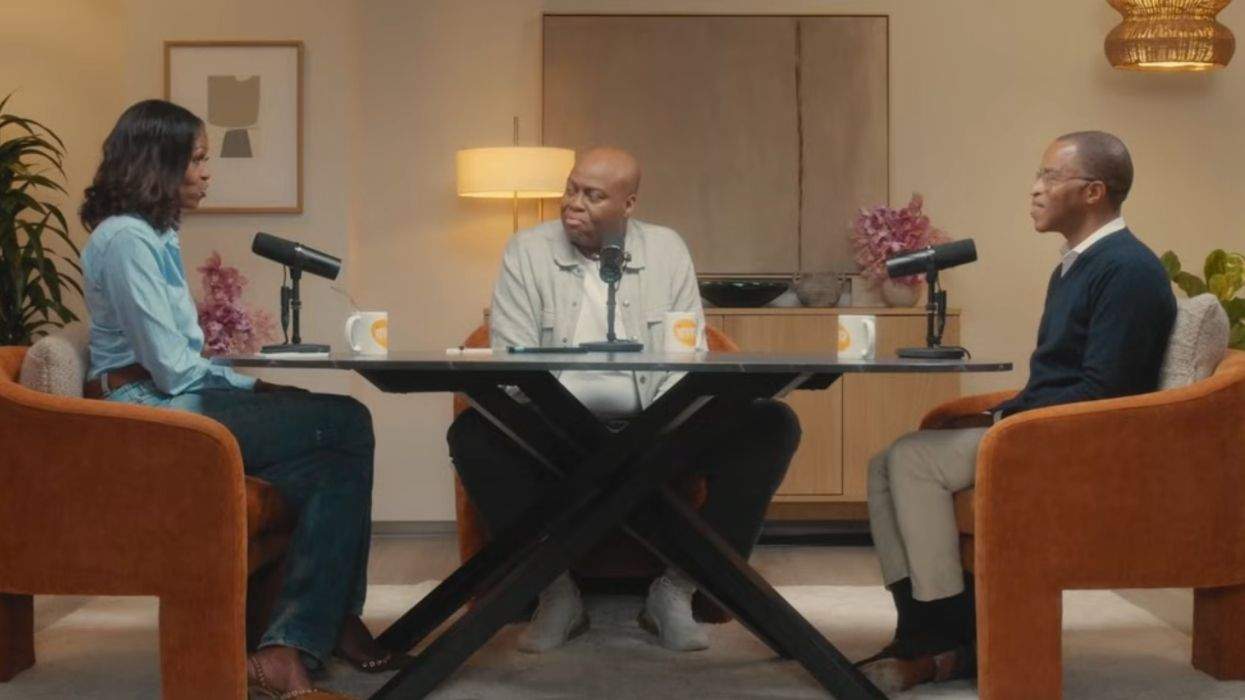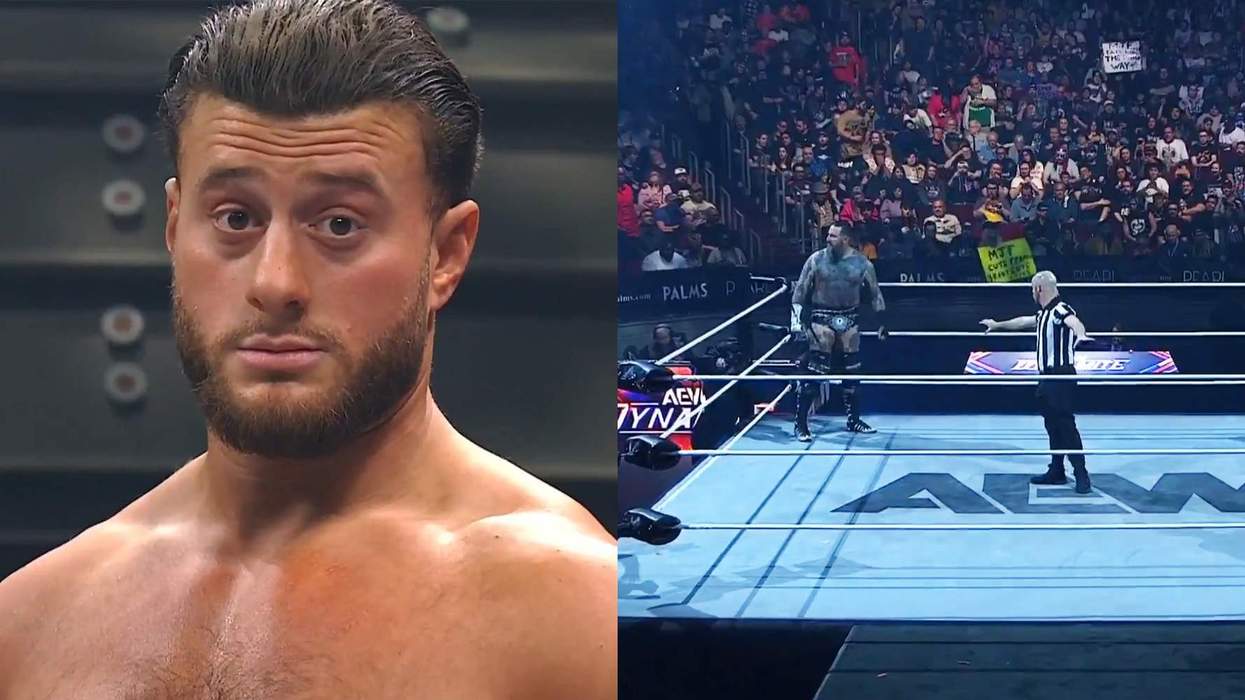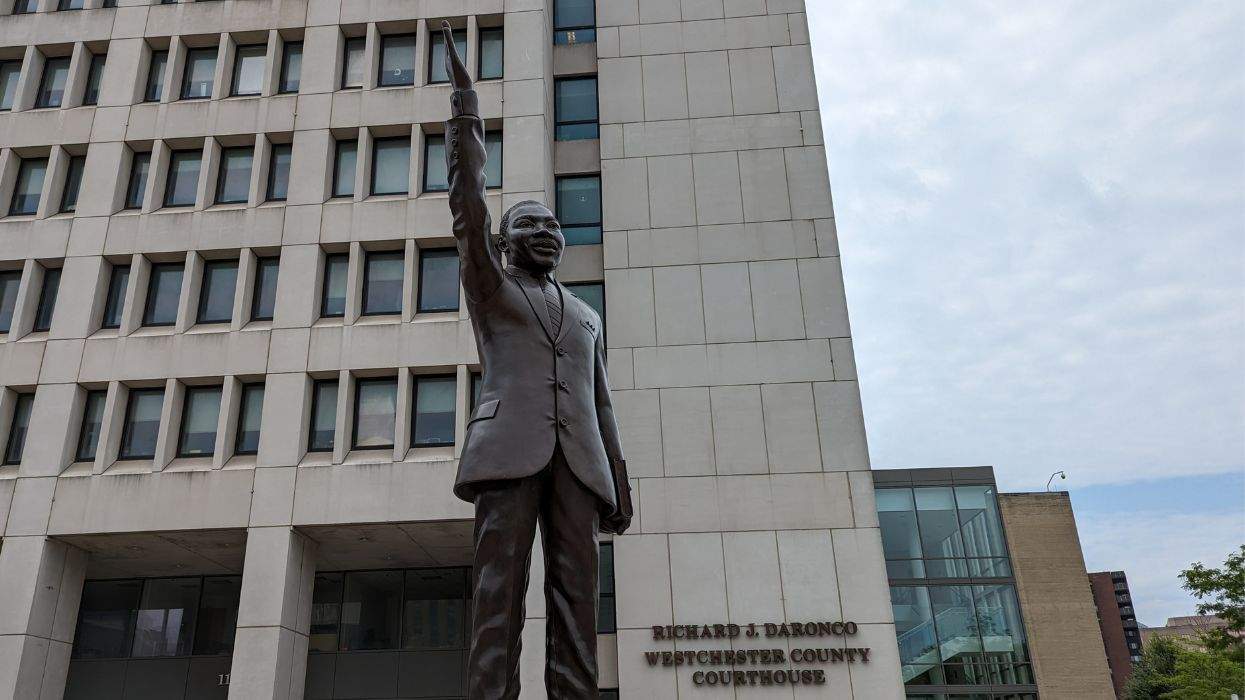The details Alexei Romanoff shares about the 1967 Black Cat protest feel staggeringly relevant. One of the first demonstrations in the U.S. protesting police brutality against LGBTQ+ people, the Black Cat protest took place two years before Stonewall.
Romanoff helped to organize the protest and is the last known person still alive who was there. On this week's episode of LGBTQ&A, he talks about the police raid that lead to the protest, the planning that went into it, and the significance of court cases that followed. While they lost at trial, it was the first time in history that a lawyer argued that gay and lesbian people are equal under the constitution.
Alexei Romanoff is also joined by his husband, the historian, David Farah.
Click here to listen to the full interview on Apple Podcasts.
Romanoff: There had been a raid on New Year's Eve at the Black Cat. The police brutality was unbelievable and extended down to another gay bar. Undercover police offers came in and started to beat the people who were there. Two men kissing longer than a few seconds was considered a crime and so these people were charged with a lewd conduct. We were upset, as any community would be, so we started to organize.
After the Second World War with the Nazis, knowing all about that sort of thing and what had happened in the death camps, we were determined that we were not going to go down that road, at least not quietly. That was very much in our mind and was part of our upbringing.
Jeffrey Masters: Regarding lewd conduct, David, could you explain how that was defined back then?
Farah: The current statute under California law is showing your genitals, having sex in public. Back then it wasn't specific. Any kissing between two men was generally considered lewd conduct. There had been a case in California before the Black Cat raid between two women kissing. They fought the lewd conduct charge and actually won that, but men kissing was not acceptable. It was an amorphous sort of statute.
At that time, it wasn't just criminal statutes. In 1967, the American Psychiatric Association considered homosexuality to be a mental illness. In California, acts of sex between two men were considered a criminal offense until 1975. You can be committed by your family or by the police, so in addition to having no protection under the law at all, being subject to being fired, losing your housing, losing your friends, losing your profession, you also could be considered a mental case.
Masters: And at that time, if you are charged, you also were added to these sex offenders list.
Farah: Yes. If you were convicted under the statutes, you were automatically a registered sex offender for life. You think it's outrageous now, but if you think in 50 years what behaviors now will be considered outrageous, it's the same sort of thing. Denying transgender individuals the right to use their own bathroom, I'm sure is going to be considered outrageous in 50 years.
Masters: I hope it's outrageous in ten.
Farah: I hope so, too.
Romanoff: Sooner than 10. I don't have that long to wait. The world would be in a better place. It's not just for the trans people who would benefit. When you have an illegitimate law preventing people from doing certain things, that affects society, and you've got to stand up, you've got to say, "I'm mad as hell and I'm not gonna take it anymore," like we did.
Farah: Gay and lesbian history is never discussed in standard historical texts. In the context of gay history, even when it's reported, the transgender contribution is simply not known because the words to describe the transgender experience weren't well-defined until maybe the last 20 years. So if you go back, in LA the first well-documented protests was at Cooper Do-nuts in the 50s. That is reported as a gay action, but actually, it was a transgender action.
Transgender history is intimately tied with ours. There's still lots of work to be done in that area.
Masters: Did they choose New Year's Eve for the raid since they knew there would be guaranteed kissing at midnight?
Farah: There had been frequent gay bar raids in the Los Angeles area up through about 1964. There had been a truce called citywide and there hadn't been any gay bar rates for about two years prior to New Year's Eve 1967. What had happened in the election of '66 was Ronald Reagan was elected Governor of California. He became governor that night at midnight and with the change of party, the police decided they could go back and start raiding gay bars.
Romanoff: None of the regular news media covered the demonstration. We had 500 to 600 gay men, lesbians and those who support us at that demonstration. We kept moving around in a circle so we wouldn't be charged with loitering. We also had flyers we would hand out to the public. If anybody threw a flyer on the ground, we ran over and grabbed it so we wouldn't be accused of littering. We didn't want any reason that they could term this demonstration as being illegal.
Masters: Earlier protests and pickets attracted less than a dozen people.
Romanoff: The Mattachine Society, when they were picketing in Washington in front of the White House, there were only six or eight of them.
Masters: I'm surprised to hear you say that gays and lesbians were part of the protest because all the groups I've read about--The Mattachine, Daughters of Bilitis--were all separate. I didn't know how much people were or weren't working together.
Romanoff: The Daughters of Bilitis, to give them credit, actually contributed money to the defendants when they went to court. They were supportive.
Farah: Of the men that we know of arrested, seven were, as far as I can tell in the record, not able to afford their own counsel. We started to take up a collection of money to buy an attorney. He decided to try the seven together and the defense was that since it wasn't lewd conduct for a heterosexual couple to kiss, it shouldn't be lewd conduct for a same-sex couple to kiss. The judge refused to allow that line of defense.
When the trial ended, they were found guilty. The ACLU stepped in and they got an attorney who took it up to the district court, then the California Supreme Court, and he appealed it all the way up to the United States Supreme Court on this basis that gay men and women are equal under the United States Constitution and that the law should be applied to them the same as everybody else. It was revolutionary that anybody would put forward a defense that we were actually equal under the constitution because, at that time, we were still a defined as being mentally ill and our actions were defined as criminal.
All future defenses, like what we had with the Supreme Court for same-sex marriage, all of that stems back from these court cases.
Subscribe and listen to the full podcast interview on LGBTQ&A.

